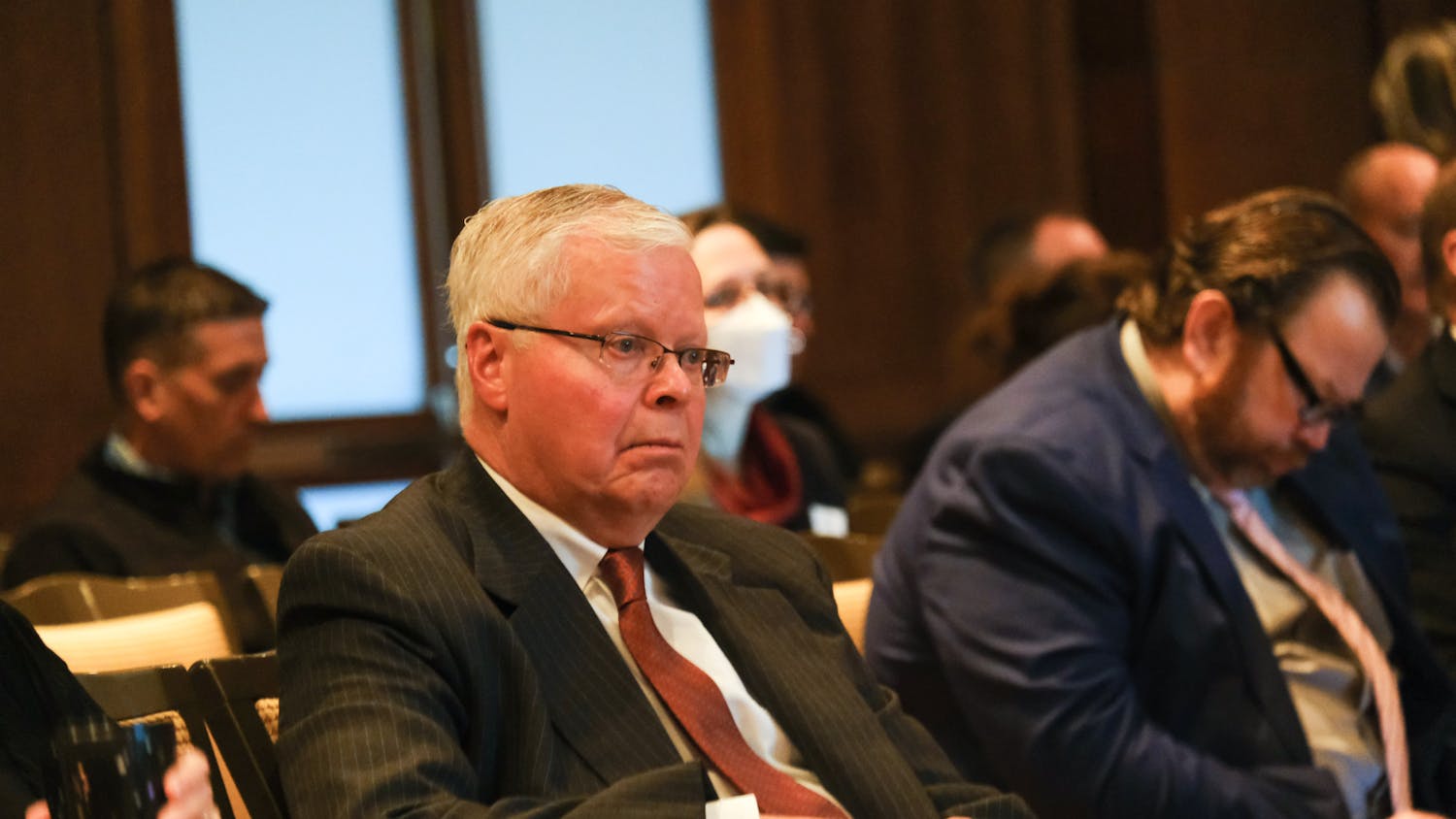On Sept. 5, Dane County clocked in at 147 positive COVID-19 cases, beating out its previous record for the highest number of cases in a single day of 141 back in June. As Public Health Madison & Dane County scrambled, calling for restricted travel around the Labor Day weekend, more and more positive results were reported among smaller numbers of conducted tests.
But with positive cases per day rising with a sudden spike in cases on the isthmus in early September, little guesswork needs to be done to determine who the culprit might be — university students.
“If it was up to me, I'd put a steel fence around the university until the numbers go down, then I'd put another one around Dane County. I've never been more afraid in my life,” said Scott Isaacson.
Isaacson, a resident of Madison since 1990, currently works as a cook at a local restaurant. He has not been outside the city since March.
“Bars are okay if you're very careful, [but] parties, no!” he stated. “Students are going to get sick just because they're tired of isolating, and I don't want to see that.”
Frustration among Madison residents regarding positive cases among students has been fueled by viral videos of dorm parties, photos of lines outside downtown bars and students packed into establishments without masks. Most recently, several sororities and fraternities have been placed under quarantine after a string of positive test results.
“The students with their lack of compliance to practical behavior like staying home and wearing masks, are making it more dangerous for those of us at risk,” another Madison resident, Maddy Scheer, stated. “Tell them to grow up and get a pair!”
Other residents worry that the recent rise in COVID-19 cases in Dane County may prevent the middle school and high schools in Madison from ever returning to in-person instruction. A widely-made criticism of UW is that the university felt confident enough to continue to hold in-person classes, all while schools in Madison have been forced online by the public health department with the promise of in-person operations when positive cases finally go down.
“The increase in cases that UW seems responsible for is keeping families who want to send their kids to in-person school from doing so,” said Kristin Scheeler, a social worker living in Madison. “This leads to a lot of ongoing economic issues for parents who must work to keep their homes and food on the table. Yes, there are some systems to help those who are truly needy, but some folks fall through the cracks of these systems.”
Jessica Richards, a stay-at-home mom, shared similar concerns, stating “Have you ever seen a 1st-grade zoom call? College should be all online to prioritize [the] safe return of young students.”
Residents like Meaghan Cibarich, who happens to work as a policy analyst, also wonder how students expect to find jobs and opportunities in Madison when the actions of students are causing businesses to close.
“As this situation drags on, the economic impact will increase and not only will daily activities like going out to eat change drastically as restaurants close, but job and internship prospects will be fewer, making career development more difficult,” said Cibarich.
Ultimately, most community members seem to agree that while students are at the root of recent spread, the UW system is at fault for bringing so many of them back to campus. Some note “UW’s greed” as a factor in inviting students back in order to charge the full cost of tuition, while worrying that students may suffer the consequences.
“I know that people want to have a normal semester, but it's also been extremely obvious for some time now that it's just not possible at this time and it feels coercive and reckless on the part of UW admin to pretend as though it could be,” stated Caitlin Tefft, a graduate student and member of UW’s academic staff. “I hope that the admin wises up and calls it for the semester before Friday, the last day to get 100 percent tuition refunded.”
The Public Health Department and the Mayor’s office has already acknowledged that students are the driving factor behind the surge in positive cases. On Sept. 5, the city announced that at least half of the reported positive cases were UW-Madison students or staff that were tested on campus.
“UW-Madison is part of the Madison community and has an impact on all of us,” said City of Madison Mayor Satya Rhodes-Conway. “The reality is that students are not confined to campus; they travel off-campus to work, volunteer, run errands, visit nearby relatives and explore area attractions. We need everyone to take precautions to help keep our community safe.”
As testing continues, 1,004 positive cases among students and staff have been reported from the public health department and on-campus health services. In response, the university has asked that all undergraduate students significantly limit their in-person interactions for the next two weeks. In addition, 99 residence hall students have been ordered to quarantine and 104 residence hall students are in isolation.
Addison Lathers is the Editor in Chief of The Daily Cardinal. She has covered city and campus news and held two editor positions. Follow her on Twitter at @addisonlathers.






